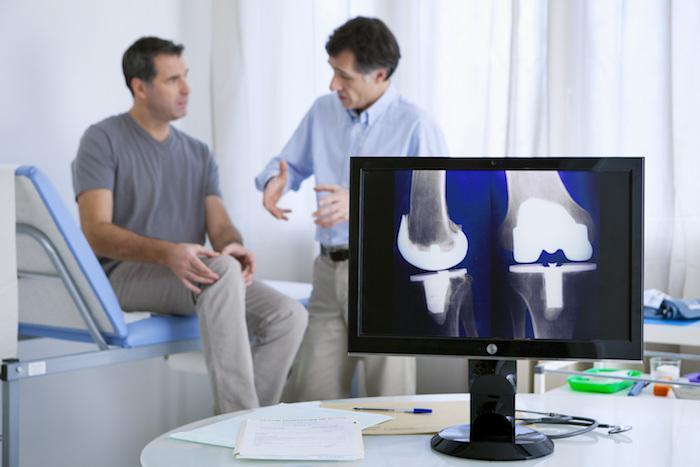The Road to Recovery: What to Expect After Knee Replacement
A knee replacement is a common and highly effective way of resolving knee pain, especially if you have arthritis in the joint. In fact, an estimated 600,000 total knee replacements occur within the United States each year alone. But this procedure is only the first step in getting you back to your active lifestyle; your commitment to the recovery process is also key.
Dr. Jared Tadje specializes in performing knee replacement surgery with minimally invasive arthroscopic techniques at Tadje Orthopaedics in Meridian, Idaho. While these approaches cause less trauma in the surgical site and faster recovery times, it can still take between three to six weeks to get back to light activities and six to 12 months for a full recovery. But, don’t worry, you won’t be sitting on the sidelines waiting to get better.
The first few days after a knee replacement
Patients typically stay in the hospital for one night after their procedure and can sometimes even leave the same day. Rehab typically starts immediately.
During this time, you can expect to do passive exercises that bend and straighten your knee. You’ll also be on your feet within 24 hours, standing and walking with the help of an assistive device, like a walker, crutch, or cane.
Your passive exercising and walking should continue over the next few days. These movements help prevent scar tissue formation and joint stiffness.
Before you go home, you also learn how to perform certain activities without disturbing your surgical site, like changing your bandage, using the bathroom, dressing, and bathing. However, you may have to wait to shower unless Dr. Tadje uses a waterproof dressing.
The first two weeks
It’s common to have swelling, bruising, and pain after having your knee replaced. To help manage these symptoms, you could need a variety of over-the-counter or prescription medications. You can also reduce mild to moderate swelling by icing your knee regularly and keeping it slightly elevated.
You may not feel your best right now, but it’s essential to use your knee and move your body. Stay on track with your recovery by doing your daily exercises and staying active. At the same time, pushing yourself too hard too quickly can delay your recovery.
Week three
When you reach this point, you should have less discomfort, and daily tasks should start getting easier.
In most cases, you should be:
-
Using less pain medication
-
Fully extending your knee
-
Walking or standing for over 10 minutes at a time
-
Using assistive devices, like walkers or crutches, less or not at all
-
Starting to drive again
It’s easy to kick back and start taking it easy at this point. However, you should remain diligent with your rehab exercises. They play a crucial role in rebuilding strength and restoring range of motion and mobility in your knee.
Weeks four to 12
Congratulations! Within four to six weeks of your surgery, you should really start seeing the results of your hard work. If you’ve been following your rehab plan, you should be noticing dramatic changes in your knee, like less swelling and inflammation, and more strength and flexibility.
Now it’s time to focus on increasing your knee strength and range of motion as you move into the home stretch of your physical therapy. And, by the time you reach Week 12, you’ll be ready to add low-impact activities again — like biking, swimming, and golfing.
Weeks 13 to 52
When you reach the three-month mark after having your knee replaced, you should be doing most of the activities you did before your procedure. However, it can take up to a year for your knee to fully heal.
During this process, Dr. Tadje can make personalized recommendations about exercises and activities to support the healing process and increase the longevity of your new knee. With the right care, approximately 90% of first-time knee replacements last a minimum of 15 years, and many for at least 20.
Are you ready to see if you’re a good candidate for a knee replacement? Contact Tadje Orthopaedics by calling 208-231-7851 or booking an appointment online today.

